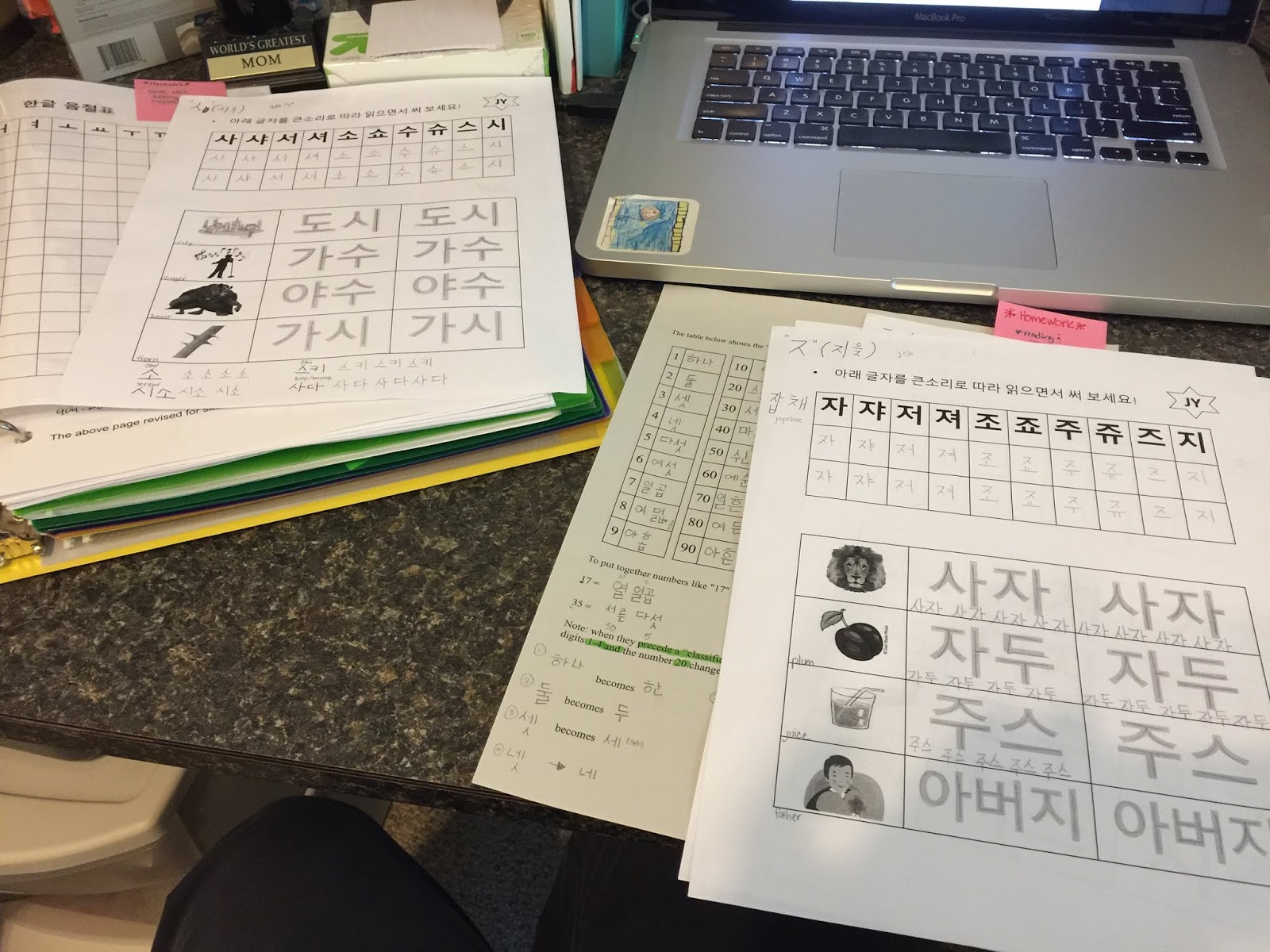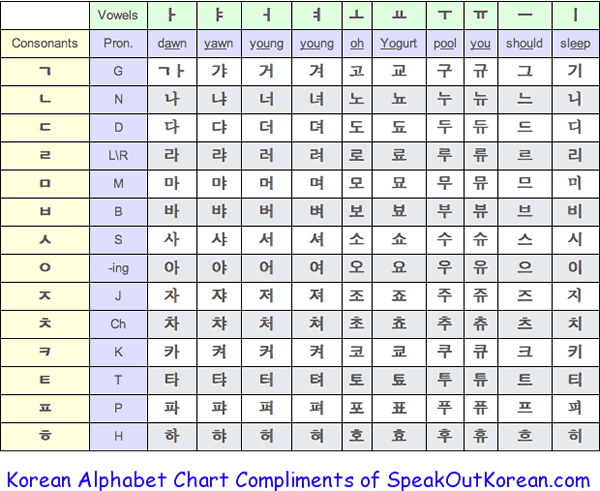Re: (Re)Connecting
My parents told me that when I began my life as their child, I spoke Korean. Of course, they didn't understand me, so it's not possible for them to tell me which words I spoke. However, my adoption file reads that I could say, "Umma, Uppa, Unny, Ai-yeappu. . ."
I wonder what the ellipses (". . .") refer to.
A huge part of any shared culture is its language. I began to lose mine when I was 18 months old. This was one of many ways in which the umbilical cord binding me to Korea began to disintegrate.
Right now in front of me lie pages and pages of Hangeul (the Korean alphabet) that I have practiced. After a brief flirtation with learning Hangeul last fall, ("It's not you, it's me," was the basic reason for quitting at the time) I started to receive tutoring twice a week a few weeks ago.
So far, I've (sort of. . . mostly. . .) learned the 140 basic characters.
I figured it would be hard for so many reasons. I'm 41. These are a bunch of circles and lines. My mouth has amnesia. I'm a working parent.
I wonder what the ellipses (". . .") refer to.
A huge part of any shared culture is its language. I began to lose mine when I was 18 months old. This was one of many ways in which the umbilical cord binding me to Korea began to disintegrate.
 |
| My first passport picture, when I spoke Korean. |
Right now in front of me lie pages and pages of Hangeul (the Korean alphabet) that I have practiced. After a brief flirtation with learning Hangeul last fall, ("It's not you, it's me," was the basic reason for quitting at the time) I started to receive tutoring twice a week a few weeks ago.
So far, I've (sort of. . . mostly. . .) learned the 140 basic characters.
 |
| Current practice right before I detoured into this post. LOL at my "World's Greatest Mom" trophy sneaking in there. |
I figured it would be hard for so many reasons. I'm 41. These are a bunch of circles and lines. My mouth has amnesia. I'm a working parent.
However.
Something that I would not anticipate is that (re)learning would trigger grief.
 |
| What motivated me to go down the rabbit hole and pull these out? I wept as I read this aloud, though the Hangeul itself holds no particular meaning yet. |
Now, these circles and lines have sounds, sounds that I'm retraining my mouth to form. I can say them aloud. (Kind of. Rieul is still my nemesis.) Now, the documents from my former life have been resurrected and are beginning to breathe anew. Each syllable I'm able to say creates a bridge back to the baby who was taken from her home.
Is this right? Is this what healing feels like?
I'm finding that as I struggle through my learning, there are other emotional ties. I don't know if they're offering new obstacles to my studies, but maybe?
Birth, as I found through experience, hurts. I suppose rebirth does, too.



Comments
Post a Comment
Comments are awesome. Write some.